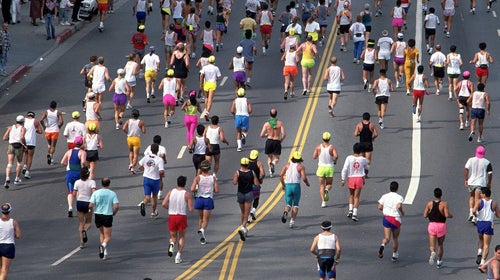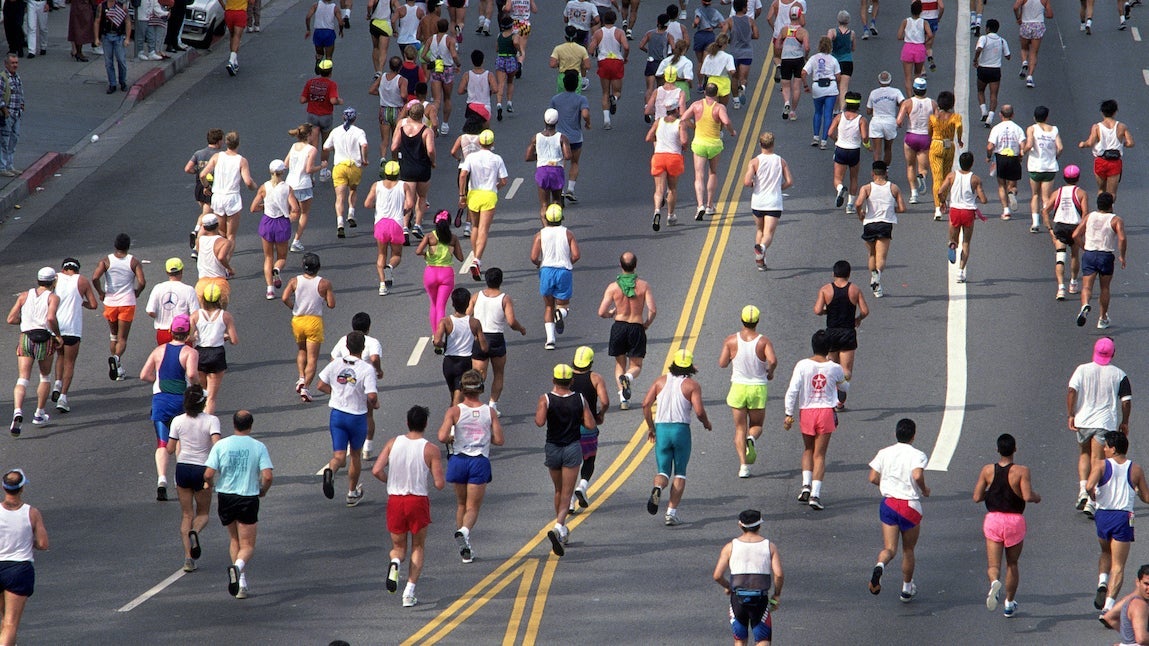A new study of nutrition habits of mid-pack marathoners indicates that some consume diets that limit their performance, and may increase their cardiac risks. Specifically, slower finishers consumed significantly less monounsaturated and polyunsaturated fats than faster runners, as well as significantly less potassium and magnesium.
The Head Investigator:
The research was carried out by Emma Roca, Ph.D., and colleagues from Barcelona, Spain. Roca is a top ultramarathon runner who competes frequently in the U.S., where she has won the Leadville Trail 100-miler (2014) and finished fifth at Western States (2015). “I myself love to run and run and run, but I am also concerned about the health of other runners, particularly their training and nutrition before a race,” she told PodiumRunner. “I want to investigate their preparations and see if there are consequences from ‘bad homework.’” (Interesting note: Like top U.S. marathoner Kellyn Taylor, Roca has a firefighting background.)
The Question:
Among a group of marathon runners, is there a link between their diet and their marathon performance, and also measures of their heart health?
The Subjects:

Participants in the 2016 Barcelona Marathon. Photo: Miquel Llop/NurPhoto/Getty Images
Subjects were recruited from the 2016 Barcelona Marathon. All were men, with an average age of 38. They had been training as runners for an average of 9 years.
The Results:
The Fast runners consumed significantly more fats, particularly monounsaturated and polyunsaturated fats, than the Slow runners. They also took in significantly more calories (mainly due to greater consumption of fats), potassium, magnesium, and fiber. The Fast runners weighed significantly less than the Slow runners, and trained more, roughly 50 miles a week vs 40 miles a week. This difference was not statistically significant.
The Fast runners had moderately better cholesterol readings than the Slow runners. They also produced significantly lower markers of muscle and heart damage post-marathon.
Nutrition and Training of Fast vs Slow Marathon Runners

Conclusion:
“The marathoners who consumed adequate amounts of unsaturated fat, potassium, and magnesium performed better and presented better cardiovascular health,” said Roca.
She noted in particular that the Fast group carried less weight than the Slow group despite a higher calorie intake (and perhaps because they trained more). She believes low weight might have independent marathon benefits in terms of post-race soreness and elevated cardiac biomarkers.
“The Slow runners have the highest elevations of biomarkers associated with muscle damage and inflammation,” Roca said. “An inappropriate weight involves problems beyond a poor performance.”
Limitations:
It’s difficult to disentangle the effects of better nutrition, better training, and healthier weight. Which is producing the superior results seen in this comparison?
Take Home Message:
Why not aim for all three? At the very least, when marathon training, be sure to consume sufficient daily calories. Roca noted that the Fast group ate more nuts and seeds, and fruits and vegetables than the Slow group. These foods tend to have healthy fats and excellent potassium and magnesium content — the very nutrients that distinguished Fast runners from Slow runners.


